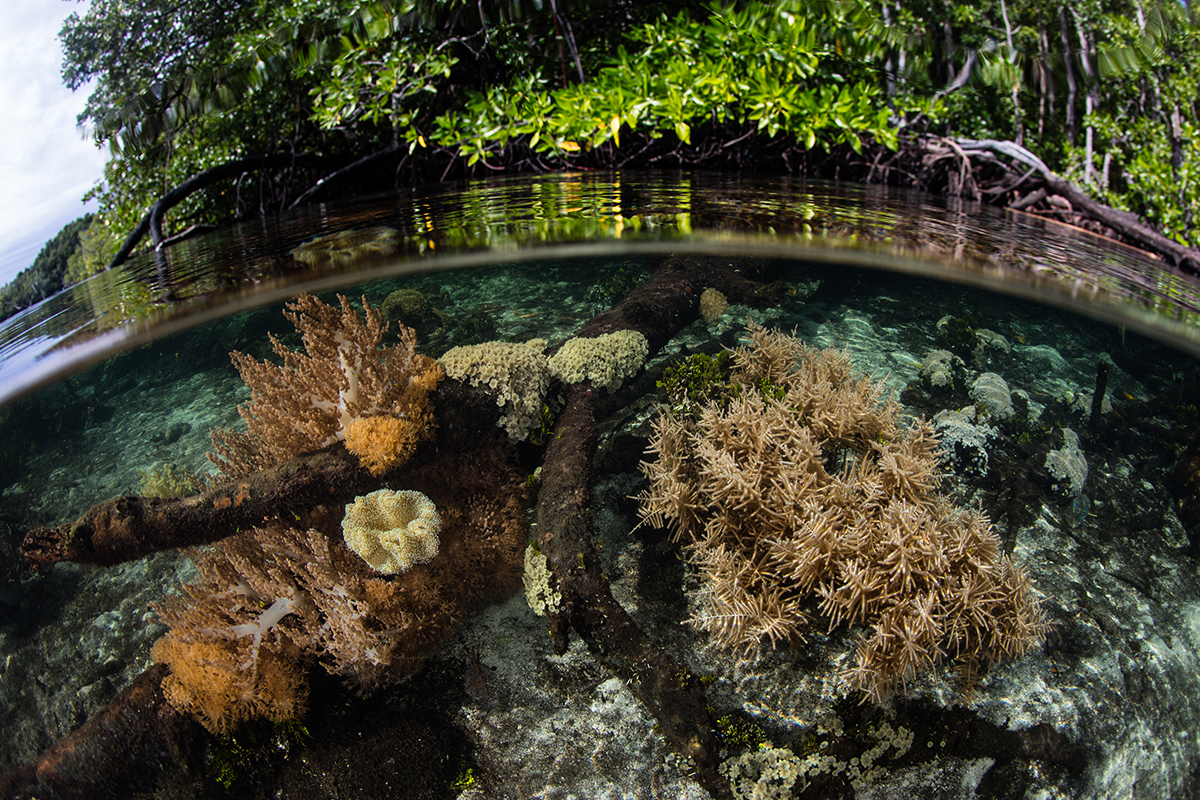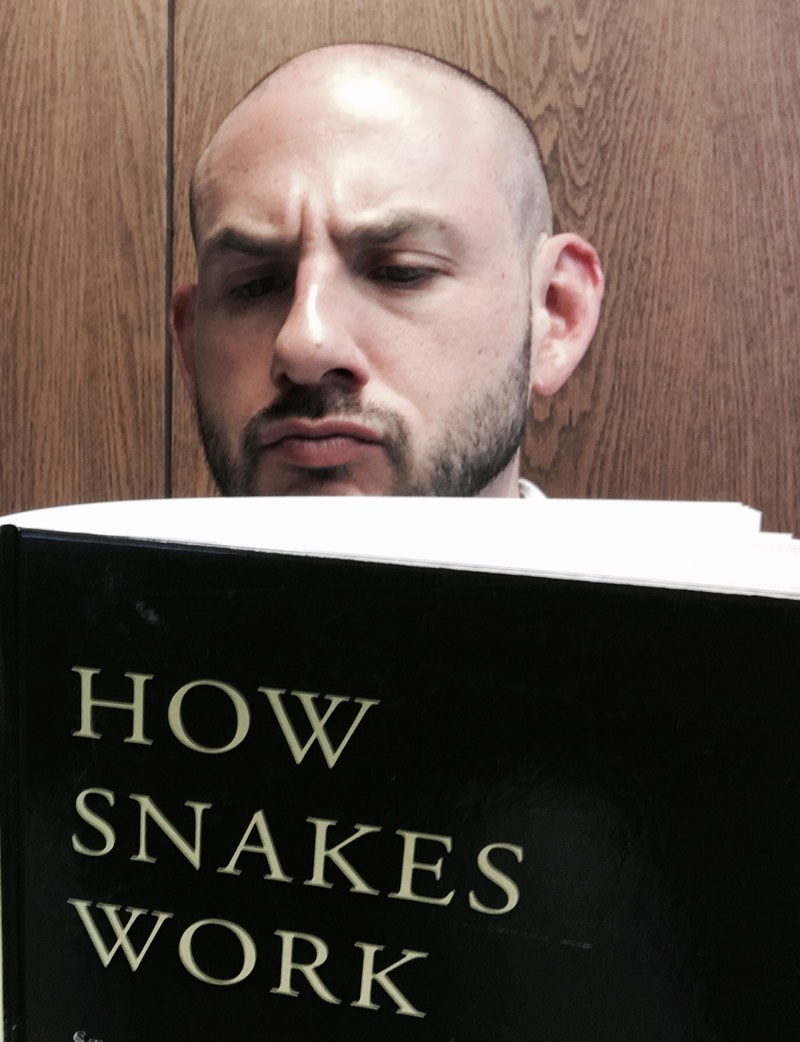
Making the Case ― Again ― for Saving Imperiled Species (Op-Ed)

David Steen received his Ph.D. in Biological Sciences from Auburn University and is now a Research Ecologist at the Georgia Sea Turtle Center on Jekyll Island. Steen has published dozens of scientific papers about wildlife ecology and conservation biology and is also an award-winning science communicator known for his wide-ranging outreach efforts (find him on Twitter, Instagram and Facebook. Finally, Steen is Executive Director of The Alongside Wildlife Foundation, a nonprofit he founded to promote science-based solutions to living alongside wildlife in perpetuity. Steen contributed this article to Live Science's Expert Voices: Op-Ed & Insights.
Species are rapidly disappearing all around us; indeed, you and I are living through Earth's sixth great extinction. Most reasonable people agree that losing species is a problem. However, as a conservation biologist and a science communicator, I am used to hearing the occasional argument from radicals about why we need not be especially concerned about that loss. Imagine my horror to see these arguments compiled into a Perspectives piece published in The Washington Post, and written by a professor of biology no less! I cannot believe that it is 2018 and I have to explain why extinction is actually a bad thing, but here we are.
The piece works hard to make the case that we need not be particularly distressed about the loss of biodiversity by arguing, if you will humor me some loose paraphrasing, that we are going to lose species no matter what and extinction does not make much of a difference anyway because new species might evolve in the future. But for this line of reasoning to make sense one must ignore decades of conservation science and centuries of art, literature and philosophy, not to mention millions of years of evolution. Although there have already been many responses to the article — nearly unanimous in their disapproval — I feel compelled to go on record as well and explain why the article was so aggravating to me, as someone who puts a lot of time and effort into helping people appreciate and value biodiversity.
Mainly, the author should have known better.

As an accomplished evolutionary biologist, the author must recognize how silly it is to describe the gradual change of evolutionary lineages over millions of years, and argue this process is synonymous — biologically and ethically — to our ongoing and rapid extinction crisis. Today, our actions are actually ending lineages, and in only a few scant years too, while simultaneously destroying the evolutionary stage, the animals' habitats.
One of the foundations of a graduate education is learning how to appreciate and understand a subject before critically evaluating it. A few moments spent talking to any conservation biologist would have revealed to the author why so many scientists and environmentalists are concerned about the issues he callously tosses aside.
For example, the author questions why invasive species — animals that are not native to a habitat — are perceived as negative, despite the fact that they often increase the number of species in a given area. There is a pretty simple answer. Conservation biologists do not view conservation as a game, in which the goal is to create areas with the highest species counts. Rather, our priorities are based on the preservation of native ecosystems and their communities of unique species.
Sign up for the Live Science daily newsletter now
Get the world’s most fascinating discoveries delivered straight to your inbox.
Although the article frames conservation as a field attempting to save species in isolation, it has been nearly 70 years since the philosopher and scientist Aldo Leopold emphasized the importance and complexity of ecological interactions in natural communities, and how these communities begin to fall apart when their member species are lost. He noted that keeping "every cog and wheel is the first precaution of intelligent tinkering." Consequently, he would not likely subscribe to the worldview espoused in the Washington Post article, nor would the generations of scientists that came after him.
Finally, when the author argues that extinctions will not significantly change our way of life, to whom is he referring? Who is part of the "developed society" that the author sees in our shared future? Does "we" include all of the world's different cultures and their unique relationships with nature, or is he actually just envisioning a future world like his own?
I could go on. The piece is littered with mischaracterizations and oversights all seemingly in service to nihilistic proclamations about biodiversity loss; the article is not a robust scholarly work so I will not treat it as such. It is a shame that the article did not reflect much familiarity with the work of scientists and philosophers who have built their careers studying and communicating conservation issues.
After the article's publication and in the face of mounting criticism, the author seemed to backtrack considerably from the points he made in the article while responding to critics on the Facebook page I use for science outreach and in a longer piece that he posted on his own Facebook page. Specifically, he claimed that he values conservation efforts but was not able to effectively communicate this in the article because of, among other things, restrictive word limits. Frankly, I feel that this explanation rings hollow, given he used 247 words to make the case in one paragraph of the original article that biodiversity — both the pinnacle and foundation of life on Earth — can actually be bad.
Why do I care so much about a single article? I care because I worry that it provides the public with a distorted view of how biologists view our ongoing extinction crisis while also providing ammunition to those who wish to unsustainably exploit our natural resources.
But perhaps I fear most of all that the piece will demoralize those who care about conservation and biodiversity.
In truth, we are surrounded by conservation successes; we have brought iconic species like the American alligator and the bald eagle back from the brink of extinction because we recognized their value and we fought for them. We can and will do it again for other imperiled species. For me, extinctions caused by our actions will never be spiritually or culturally acceptable.
And I know I am not alone.
Original article on Live Science.










